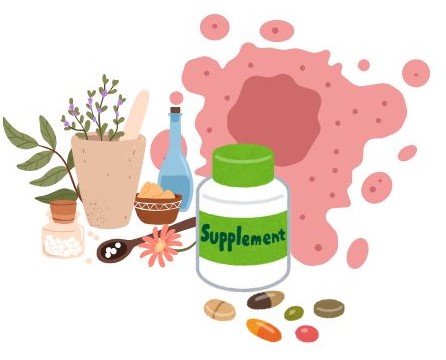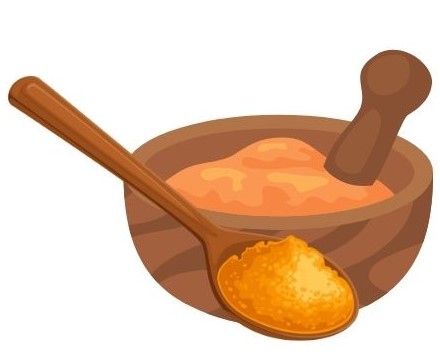Green tea extract, derived from the leaves of the Camellia sinensis plant, has gained popularity for its potential health benefits, particularly in the realms of blood sugar regulation and gut health. Rich in polyphenols, especially catechins, green tea extract exhibits various bioactive properties that may positively impact metabolic processes and inflammatory conditions. This article explores how green tea extract can help reduce blood sugar levels and gut inflammation, supported by scientific research.
Understanding Green Tea Extract
Composition
Green tea extract contains a concentrated form of the beneficial compounds found in green tea, primarily catechins. The most abundant catechin in green tea is epigallocatechin gallate (EGCG), known for its antioxidant properties and various health benefits.
Forms of Green Tea Extract
Green tea extract is available in various forms, including capsules, powders, and liquid extracts. The concentrated nature of these forms allows individuals to consume higher doses of beneficial compounds compared to regular green tea.
Blood Sugar Regulation
1. Mechanism of Action
A. Insulin Sensitivity
Research indicates that green tea extract may enhance insulin sensitivity, which is crucial for blood sugar regulation. Improved insulin sensitivity allows cells to utilize glucose more effectively, thereby lowering blood sugar levels.
B. Glucose Metabolism
Green tea extract may influence glucose metabolism by inhibiting enzymes responsible for carbohydrate digestion, such as α-amylase and α-glucosidase. This inhibition can lead to slower absorption of glucose in the intestines, resulting in more stable blood sugar levels.
C. Impact on Glycogen Storage
Studies suggest that green tea extract may promote the uptake of glucose into muscle cells and increase glycogen storage in the liver, further aiding in blood sugar control.
2. Research Findings
- Clinical Studies: Several clinical studies have shown that supplementation with green tea extract can lead to reductions in fasting blood glucose levels and hemoglobin A1c (a marker of long-term blood sugar levels).
- Diabetes Management: Green tea extract may be beneficial for individuals with type 2 diabetes, contributing to better glycemic control and potentially reducing the risk of complications associated with the disease.
Gut Inflammation
1. Mechanism of Action
A. Anti-Inflammatory Properties
The catechins in green tea extract, particularly EGCG, exhibit strong anti-inflammatory properties. They can inhibit the production of pro-inflammatory cytokines and enzymes, thereby reducing inflammation in the gut.
B. Gut Microbiota Modulation
Green tea extract may positively influence gut microbiota composition. A healthy gut microbiome is essential for maintaining gut integrity and reducing inflammation. Research suggests that green tea extract can promote the growth of beneficial bacteria while inhibiting harmful strains.
C. Barrier Function
EGCG has been shown to enhance the integrity of the intestinal barrier, preventing the translocation of harmful bacteria and toxins into the bloodstream. This barrier protection is vital in reducing gut inflammation.
2. Research Findings
- Animal Studies: Research conducted on animal models has demonstrated that green tea extract can reduce markers of inflammation in the gut, including cytokines and other inflammatory mediators.
- Human Studies: While more research is needed, preliminary studies suggest that green tea extract may help alleviate symptoms of inflammatory bowel diseases (IBD) such as Crohn’s disease and ulcerative colitis.
Additional Benefits of Green Tea Extract
1. Antioxidant Effects
Green tea extract is a potent source of antioxidants, which can help neutralize free radicals and reduce oxidative stress, a contributor to both elevated blood sugar levels and gut inflammation.
2. Weight Management
Some studies indicate that green tea extract may assist in weight management by increasing fat oxidation and improving metabolic rate. Weight management is crucial for blood sugar control and reducing inflammation.
How to Incorporate Green Tea Extract
Incorporating green tea extract into your daily routine can be a straightforward process, allowing you to reap its health benefits effectively. Here’s a detailed look at various methods to integrate green tea extract into your diet and lifestyle.
1. Supplements
A. Types of Supplements
- Capsules and Tablets: These are the most common forms of green tea extract. They typically contain standardized amounts of catechins, making it easier to control your intake.
- Powders: Green tea extract powder can be mixed with liquids or foods. This form allows for flexibility in dosing and is often used in smoothies or recipes.
- Liquid Extracts: These can be added to beverages or taken directly, providing a concentrated source of catechins.
B. Dosage
- General Recommendations: A typical dosage ranges from 250 mg to 500 mg of green tea extract per day, often standardized to contain a specific percentage of EGCG (around 50-90%).
- Start Small: If you’re new to green tea extract, start with a lower dose to assess your tolerance before gradually increasing.
C. Timing
- With Meals: Taking green tea extract with meals may enhance its absorption and reduce the likelihood of gastrointestinal discomfort.
- Consistent Schedule: Aim to take your supplements at the same time each day to establish a routine.
2. Brewed Green Tea
A. Brewing Techniques
- Quality Tea: Opt for high-quality loose-leaf or bagged green tea. Look for brands that specify their catechin content for better efficacy.
- Proper Steeping: Brew green tea in water that’s about 160°F to 180°F (70°C to 80°C) for 2-3 minutes to preserve catechins. Avoid boiling water, as it can degrade these compounds.
B. Daily Intake
- Recommended Amount: Drinking 2-3 cups of brewed green tea daily can provide beneficial levels of catechins, particularly EGCG.
3. Incorporating Matcha
A. What is Matcha?
- Definition: Matcha is a powdered form of green tea made from shade-grown tea leaves, offering a higher concentration of antioxidants and nutrients compared to regular green tea.
B. Uses of Matcha
- Smoothies: Blend matcha powder into your morning smoothie for an antioxidant boost.
- Baking: Incorporate matcha into baked goods like muffins, cookies, or pancakes for added flavor and health benefits.
- Lattes: Create a matcha latte by whisking matcha powder with hot milk (dairy or plant-based) and a sweetener of choice.
4. Culinary Applications
A. Salad Dressings
- Recipe: Combine olive oil, vinegar (like apple cider or rice vinegar), a teaspoon of green tea extract or powder, and seasonings to create a flavorful dressing.
B. Soups and Broths
- Addition: Stir green tea extract powder into broths or soups for an added layer of flavor and nutritional benefits.
C. Snack Ideas
- Energy Balls: Mix green tea powder with oats, nut butter, honey, and seeds to create energy balls for a nutritious snack.
5. Herbal Teas and Blends
A. Mixing with Other Herbal Teas
- Combination: Blend green tea extract with herbal teas like ginger or peppermint for enhanced flavors and additional health benefits.
6. Mindful Consumption
A. Setting a Routine
- Consistency: Integrate green tea extract into your daily routine. For example, you might have a cup of green tea in the morning and take a supplement with lunch.
B. Monitoring Effects
- Journaling: Keep a journal to track any changes in energy levels, digestion, or overall health as you incorporate green tea extract.
Incorporating green tea extract into your diet can be a delicious and healthful endeavor. Whether through supplements, brewed tea, or culinary applications, there are many ways to enjoy the benefits of this powerful extract. By maintaining consistency and paying attention to your body’s responses, you can effectively support your health goals, including better blood sugar management and reduced gut inflammation.
Potential Side Effects and Precautions of Green tea Extact
While green tea extract is generally safe for most people, some may experience side effects, particularly at high doses:
- Caffeine Sensitivity: Green tea extract contains caffeine, which may lead to jitteriness or insomnia in sensitive individuals.
- Gastrointestinal Issues: Some people may experience stomach upset or nausea, particularly when taken on an empty stomach.
- Medication Interactions: Green tea extract may interact with certain medications, including blood thinners. Always consult with a healthcare provider before starting any new supplement.

Green tea extract is a promising natural supplement that may help reduce blood sugar levels and alleviate gut inflammation, thanks to its high concentration of beneficial catechins. While research supports its potential benefits, individual responses may vary. Incorporating green tea extract into your routine, along with a balanced diet and healthy lifestyle, can contribute to improved overall health and well-being. As always, consulting with a healthcare professional before starting any new supplement regimen is advisable to ensure safety and effectiveness.







